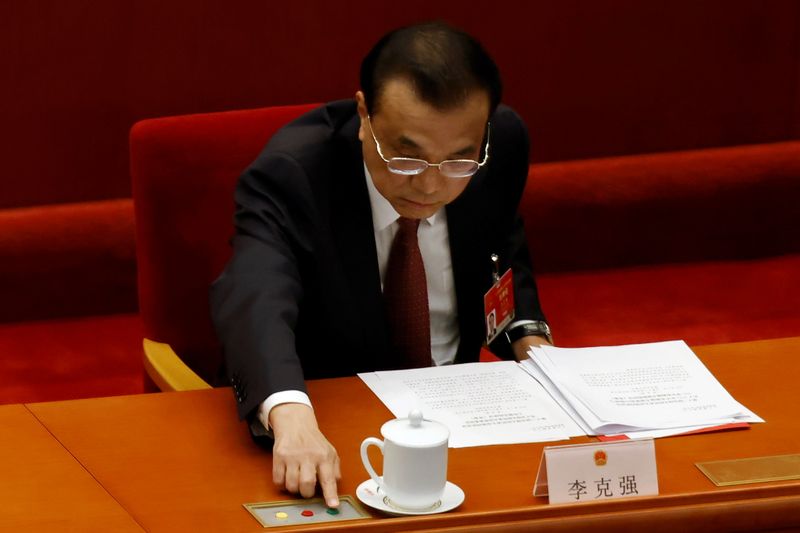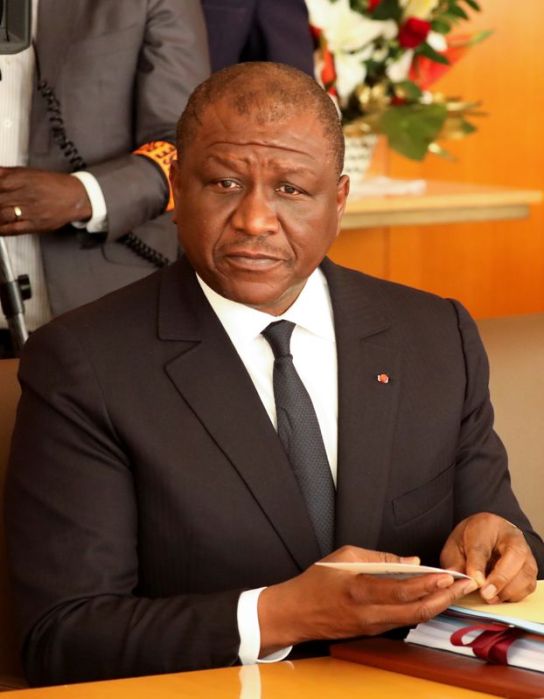BEIJING (Reuters) – Chinese Premier Li Keqiang on Thursday defended the government’s target for more than 6% economic growth this year, saying it is “not low”, and policies would not be dramatically loosened to chase higher growth.
The target was well below analysts expectations, as their consensus forecast is for growth of more than 8% this year.
Li said the focus this year is on consolidating China’s economic recovery, and setting hugely different growth targets from year to year would only “disturb” market expectations.
“Walking quickly for a moment does not mean one is walking steadily,” Li said. “It is only with a steady pace that we will be firm in our steps.”
Li warned against any “sharp turn” in policy making, and said that there would be no drop in efforts to secure people’s livelihoods.
“We did not ease policies last year, nor do so-called quantitative easing, and there is also no need for a ‘sharp turn’ this year,” Li told reporters after the close of the annual meeting of parliament.
On the government’s 2021 target to create more than 11 million urban jobs, Li said he hoped that goal could be exceeded even though pressure on employment remains significant.
“In generating jobs, we have to let the market play a critical role, which is protecting jobs by supporting market entities,” he said.
Financing channels to small and medium-sized enterprises should be kept open even as banks remain vigilant over debt risks.
“We will guide financial institutions to reasonably give up profits while stabilising leverage ratios, to make it easier for firms to raise capital amid declining financing costs,” Li said.
China will also continue to open up to outside investment, including a push to open up its services sector, he said.
“We will deepen our opening up while boosting domestic demand through all efforts, and make China an important destination for foreign investment,” he said.
With 260 million elderly people, China’s “aging industry” in particular can be a huge “sunrise industry” for foreign companies, Li said.
(Reporting by Kevin Yao; Additional reporting by Stella Qiu and Gabriel Crossley; Writing by Ryan Woo; Editing by Alex Richardson & Simon Cameron-Moore)
























